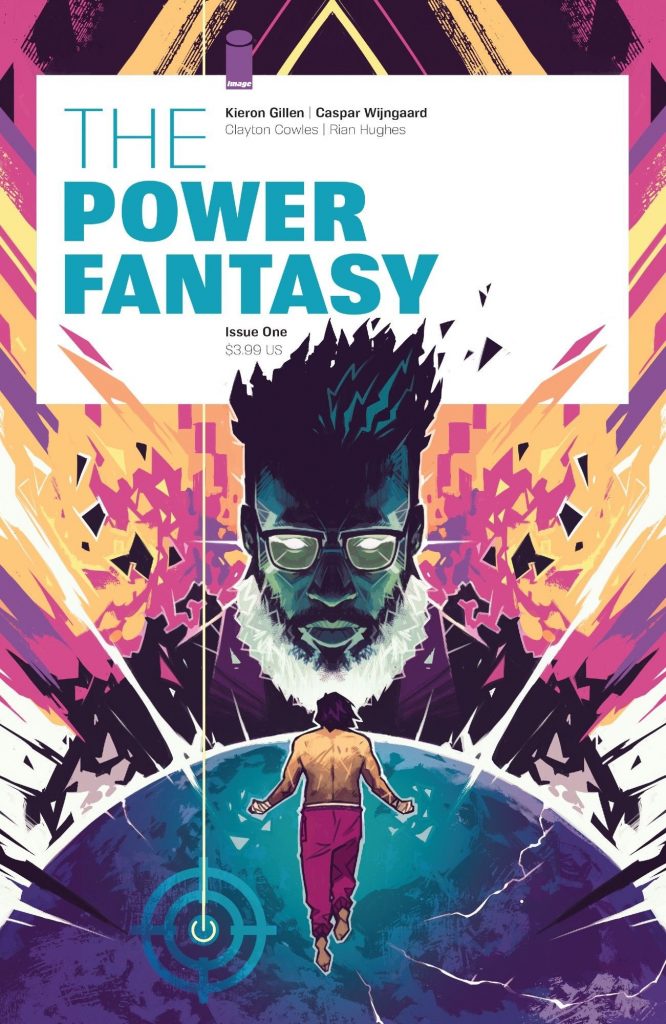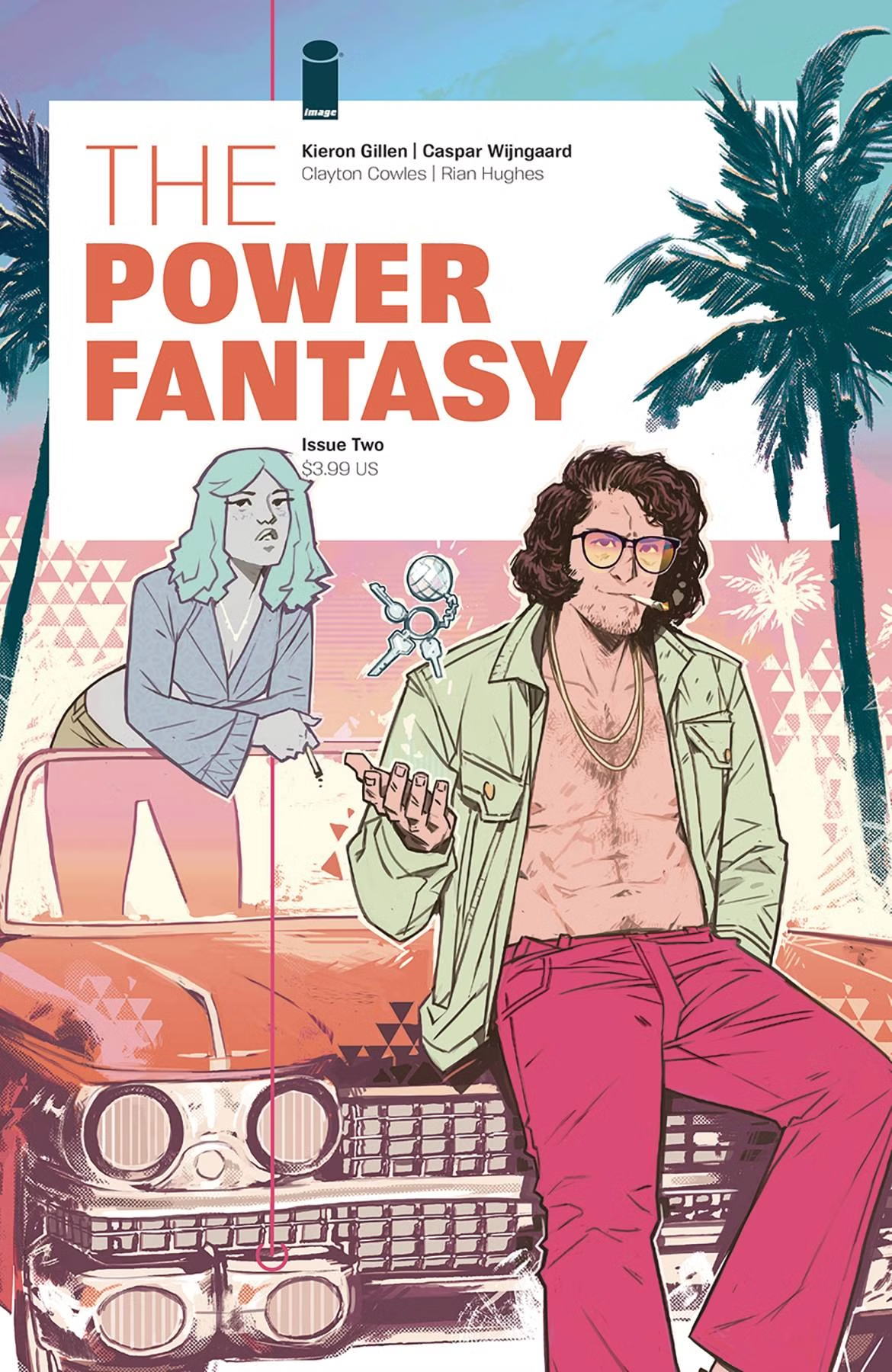Comic Book Release Dates Have Become a Guessing Game
Everyone has constants in their lives. Those things that become regular, architectural parts of our days, weeks, and months. For some, that might be getting together with friends or having a family movie night. For others, it could be something simple like a place you have breakfast each weekend or knowing you once again will try and fail at the Saturday New York Times crossword. Whatever your answer is, there’s comfort in these experiences, as you know what will be waiting for you each time even if the details tend to shift.
And for me, one of those constants is going to the comic shop each Wednesday.
Every week, I carve out time to go — typically shortly after noon when they open, never much later than 2 pm — and buy my comics. The experience is almost always the same. I walk in, the employees say hello, I wait until a clerk is available so they can grab my pull list, and then I stroll along the stands to see if any surprising comics catch my eye before making my purchases. I know what will be waiting for me each time, and that consistency is terribly appealing. That’s a key reason why Wednesdays are one of my favorite days of the week. There’s pleasure in its predictability.
That feeling has been marred of late, though. Where once there was an expected cadence, both for myself and the comics waiting for me, uncertainty has taken hold. And that’s for one simple reason: I no longer know what comics will be waiting for me each week.
Now, this isn’t me saying, “I don’t keep up with what’s being released” or something of that sort. Because of the work I put into my column The Pull — where I highlight my buys, recommendations, and curiosities from the week of releases — I’m a high information comic shop customer. I know what’s coming every Wednesday.
And yet, that’s proven increasingly untrue over the past year. My visits have been besieged by unexpected twists, like high profile issues appearing in my shop without warning 8 or other notable comics not being there when I fully expected them. It’s bewildering, to be honest, and something I’ve never consistently experienced in my three plus decades of buying single issue comics. It’s like I don’t know when comics are even coming out anymore.
According to retailers I talked to for this piece, that isn’t an uncommon feeling. Whether you’re talking about the people who work at shops or their customers, there’s a pervasive fog about when some titles will hit where there once was clarity. In short: When comics are actually coming out seems to increasingly be a mystery for those who buy and sell them.
Now, before we explore this topic further, we need to establish what we’re not talking about. This isn’t a problem for every comic. Some are released like clockwork. This isn’t something that’s happening with most titles. It’s just enough to stand out. This is also not a statement about the breaks some creative teams take between arcs or issues. Those things happen. Creativity is not an unending well, life is not perfect, and sometimes things come up that necessitate additional months or even years between issues.


What we are talking about is much more complicated and murkier, and that’s just how unpredictable or easy to miss comic releases are now. That could mean something arrives without anyone even hearing about it, like Liam Sharp saw with his graphic novella set in the world of StarHenge, Ore. It could be distribution and/or shipping-centric quirks creating bizarre Schrödinger’s comic-like situations where comics are released on the planned release date in some places and not in others, like with The Power Fantasy (twice!) and the recent Battle Action #1. 9 It might be far more difficult to define, like what happened recently for yours truly when Black Cloak #8 and Saga #69 were added to and/or subtracted from release lists at the eleventh hour. The examples could go on, but the point is this: comic release dates feel like a moving target in a way they simply haven’t in the past.
subscribers only.
Learn more about what you get with a subscription
A perfect example of that: Brian Michael Bendis and Alex Maleev’s Masterpiece #1, a comic I was excited about that I only learned came out the week it did when I saw it in my shop and thought, “Wait, that’s out?!”↩
With Battle Action, that seemingly connects to it being a comic that was produced in the United Kingdom before making it over to America, at least from what I understand. But it’s not ideal when even creators who worked on it seem uncertain about when an issue might actually hit shops.↩
A perfect example of that: Brian Michael Bendis and Alex Maleev’s Masterpiece #1, a comic I was excited about that I only learned came out the week it did when I saw it in my shop and thought, “Wait, that’s out?!”↩
With Battle Action, that seemingly connects to it being a comic that was produced in the United Kingdom before making it over to America, at least from what I understand. But it’s not ideal when even creators who worked on it seem uncertain about when an issue might actually hit shops.↩
Another wrinkle: Part of me wonders if Saga #69 didn’t appear late on shipping schedules like I thought. Maybe I just missed it simply because it was the one comic on the list that didn’t have a million variants, making it a needle in a proverbial haystack of Cover F’s, I’s, and Z’s.↩
Three of the biggest hits from the past year and a half of the direct market — Skybound’s Energon Universe, DC’s Compact Comics, and Absolute DC — were the ones that had substantial publisher-led promotional campaigns. While there are other contributing factors, that’s probably not a coincidence!↩
Meaning, after you’ve put in a whole lot of effort into telling people when your comic is coming out.↩
A perfect example of that: Brian Michael Bendis and Alex Maleev’s Masterpiece #1, a comic I was excited about that I only learned came out the week it did when I saw it in my shop and thought, “Wait, that’s out?!”↩
With Battle Action, that seemingly connects to it being a comic that was produced in the United Kingdom before making it over to America, at least from what I understand. But it’s not ideal when even creators who worked on it seem uncertain about when an issue might actually hit shops.↩
